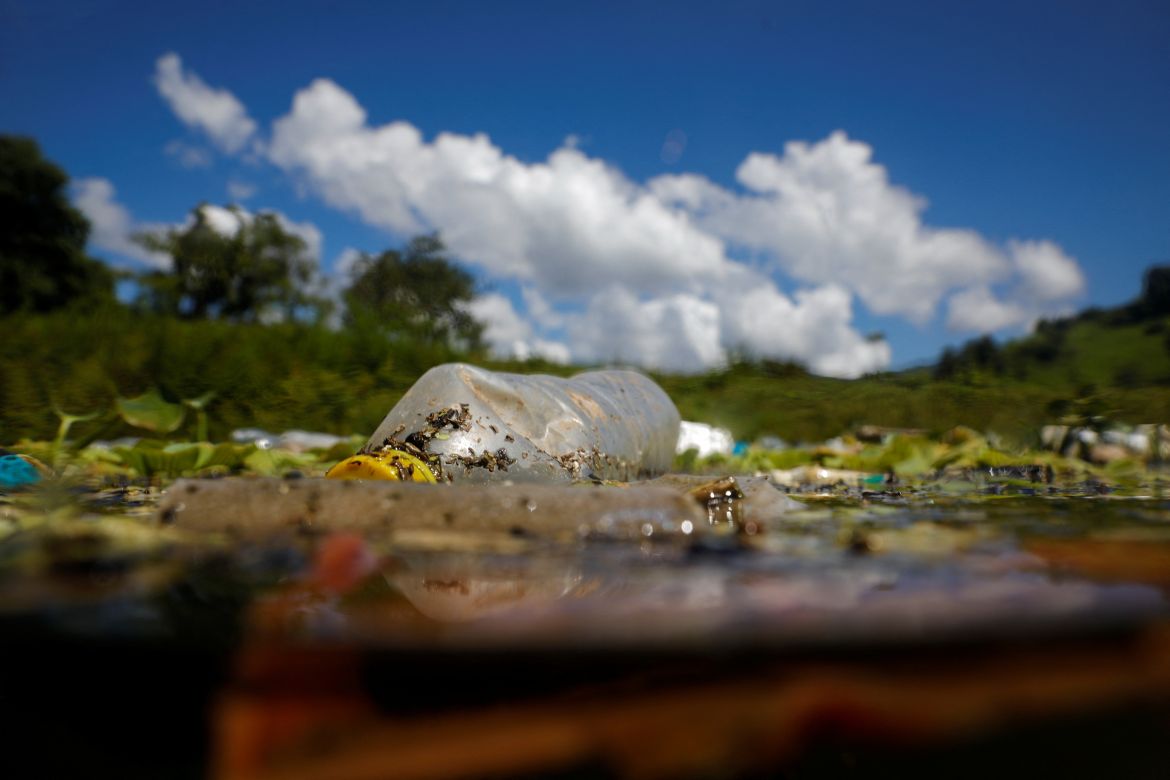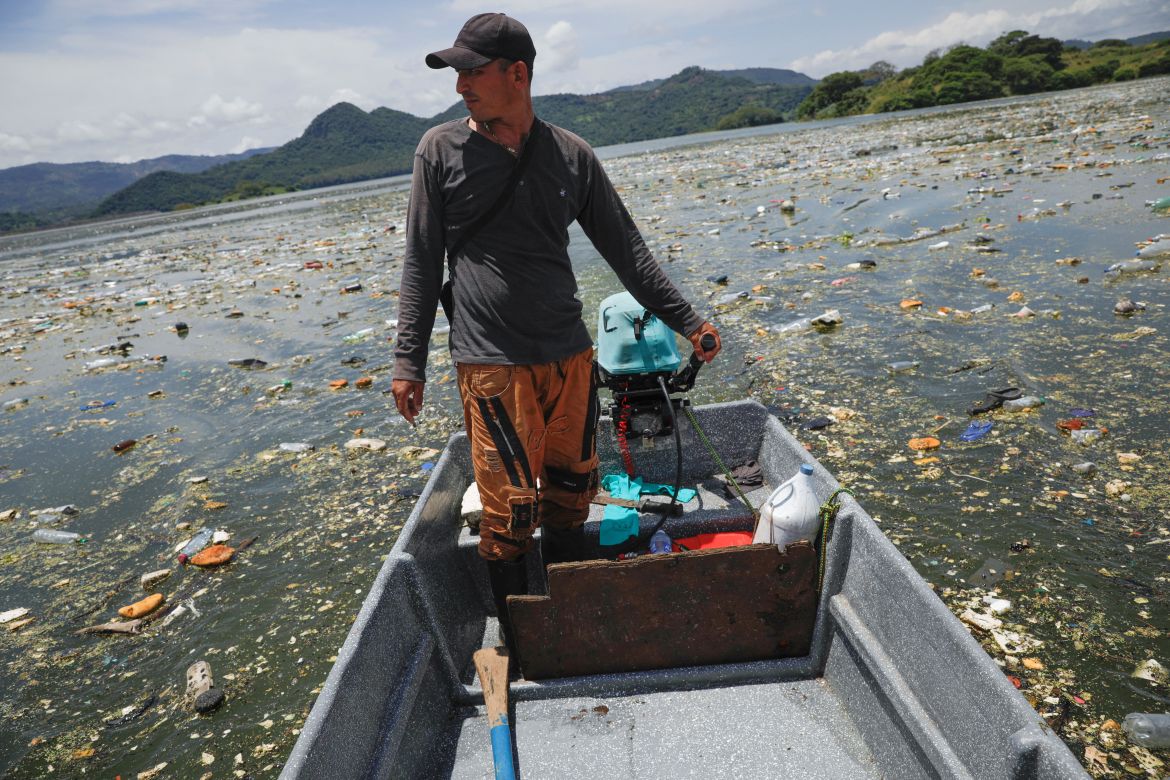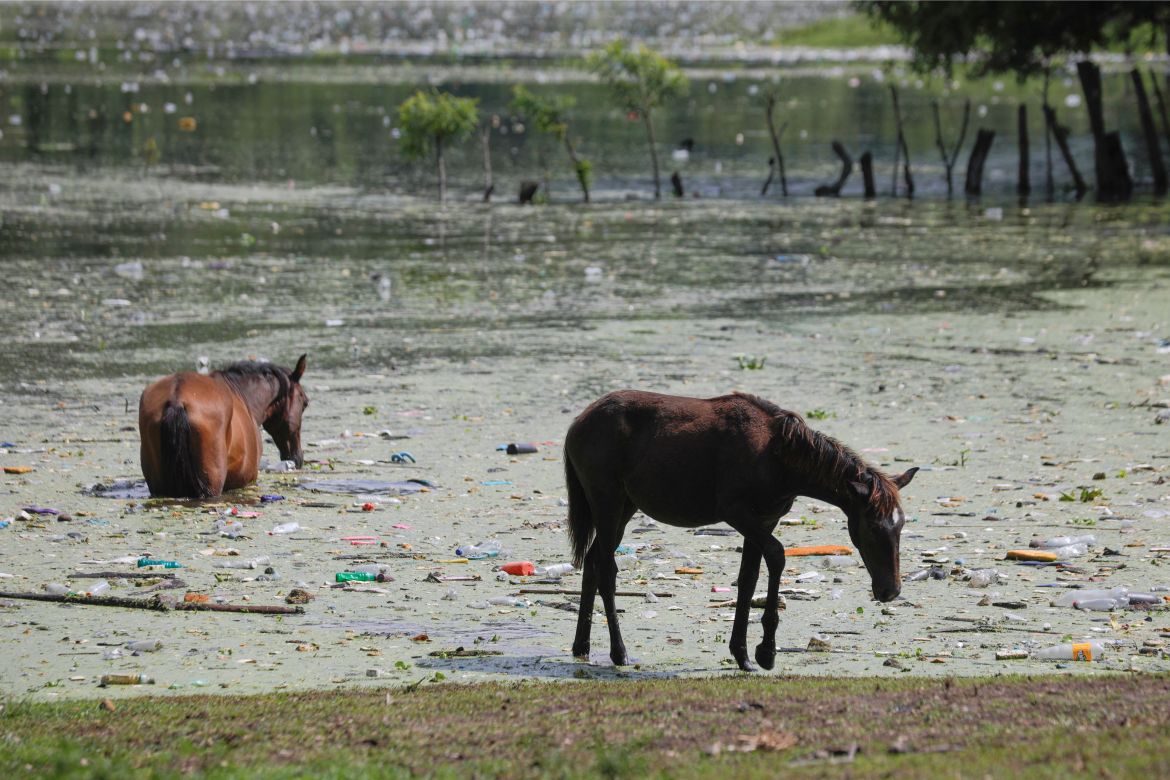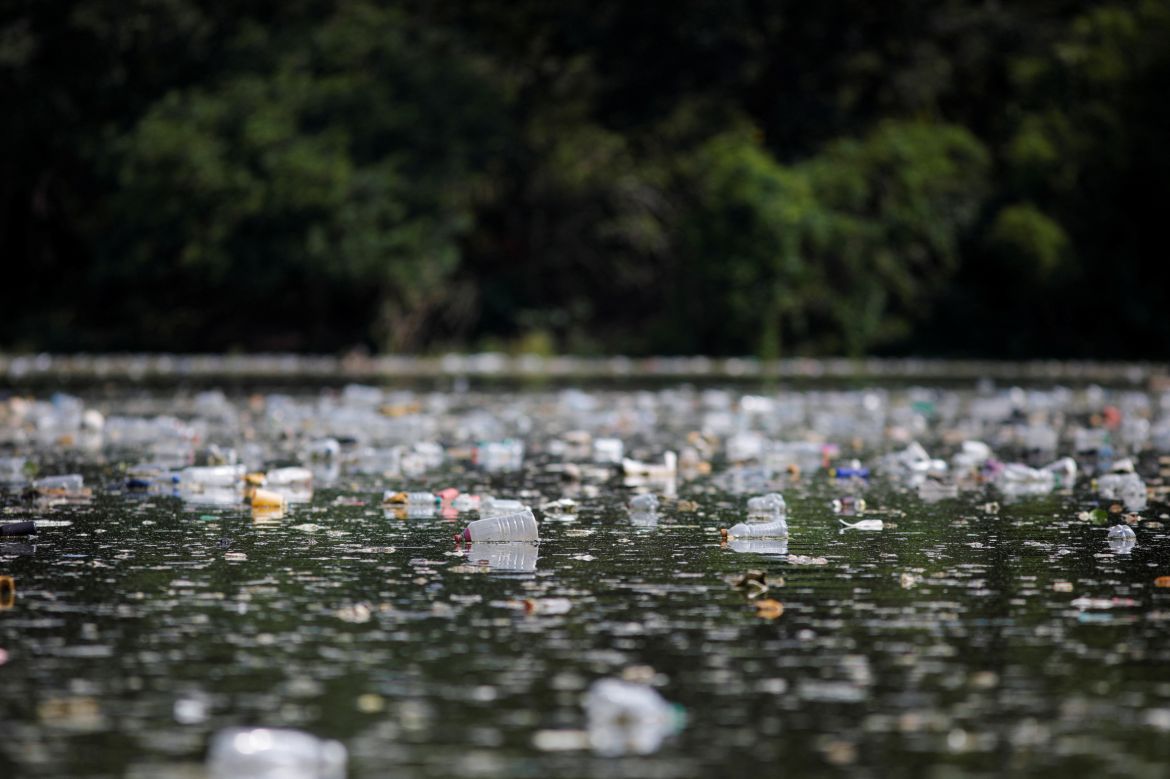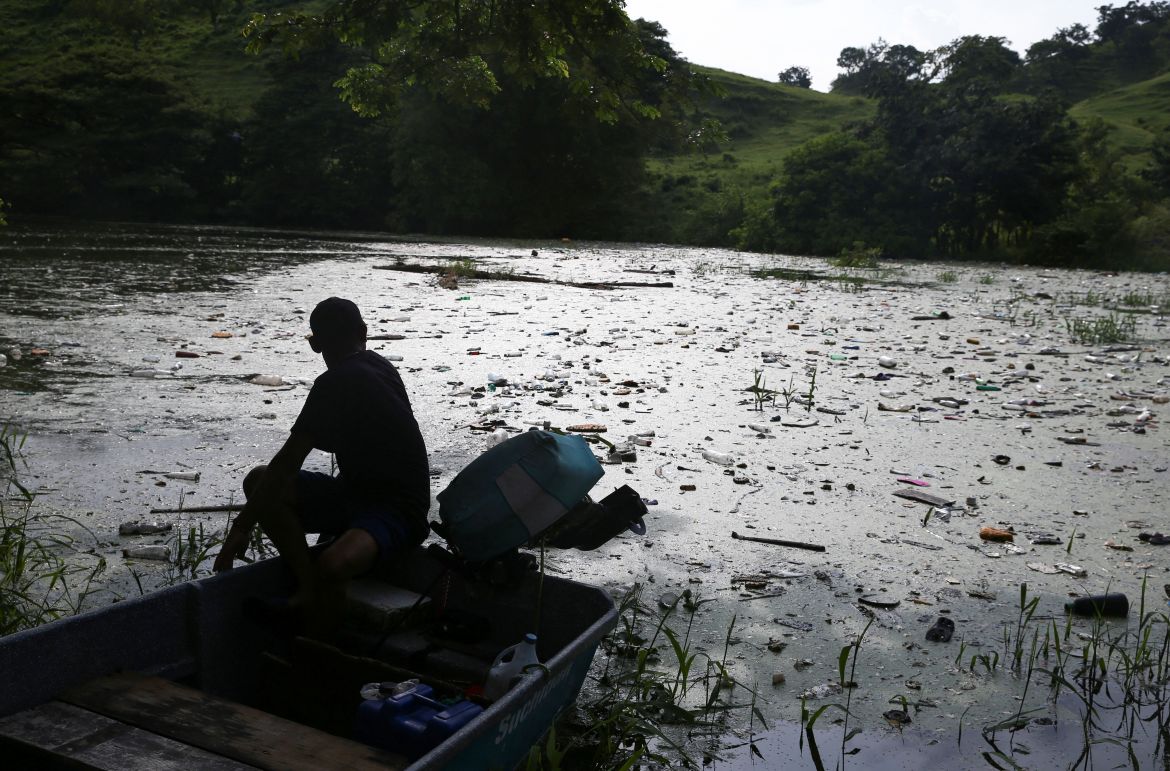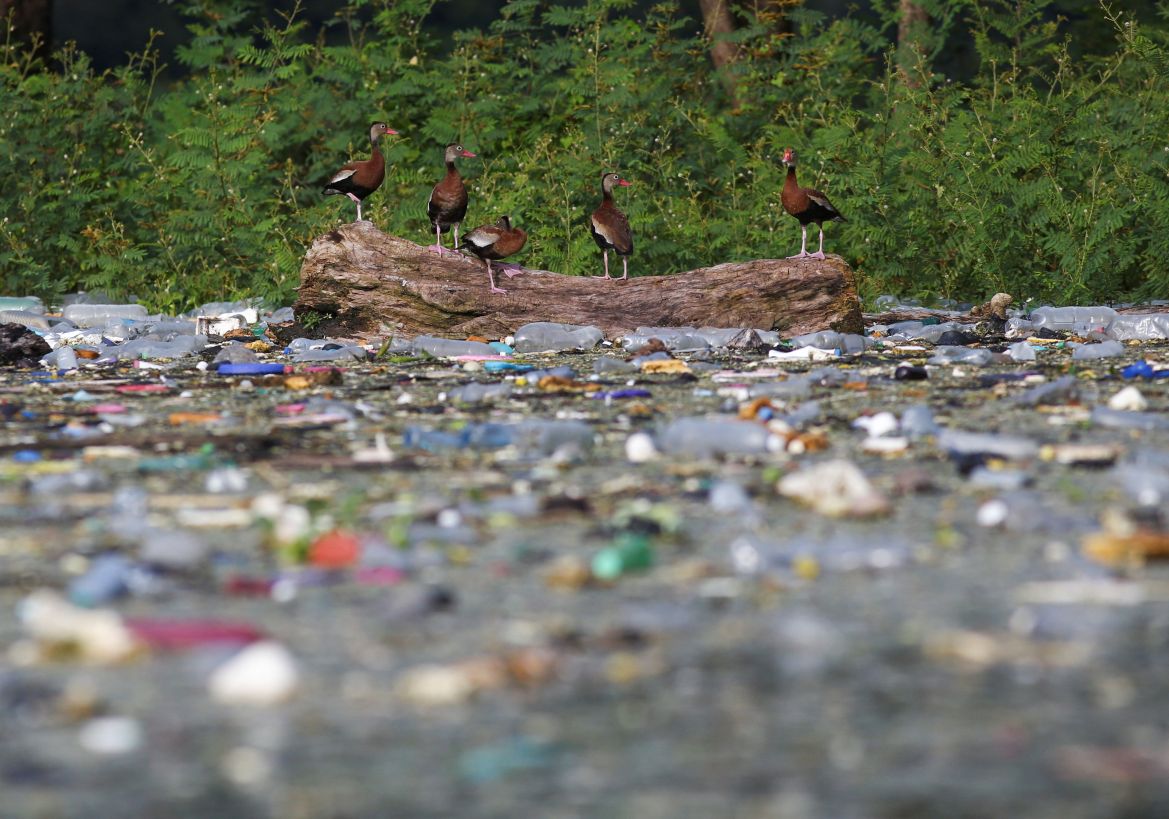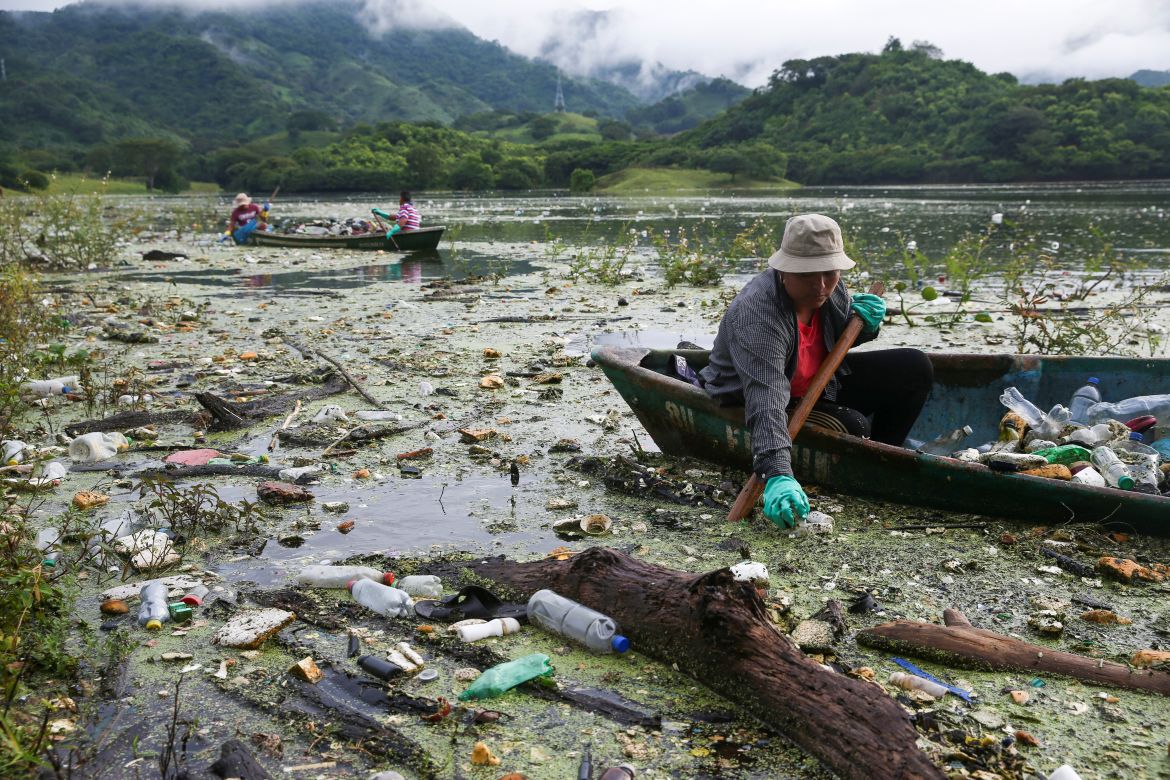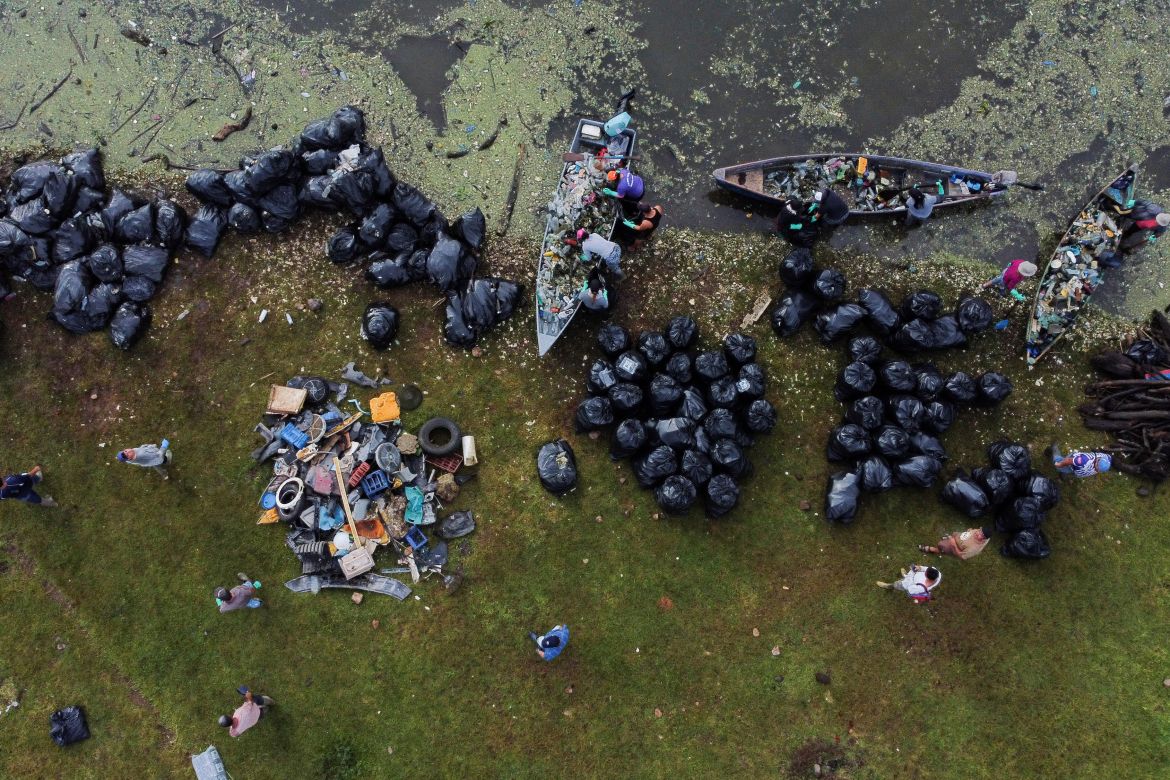In Pictures
Photos: El Salvador’s biggest freshwater lake swamped by rubbish
A protected site on paper, the Cerron Grande reservoir is one of Central America’s most polluted bodies of water.
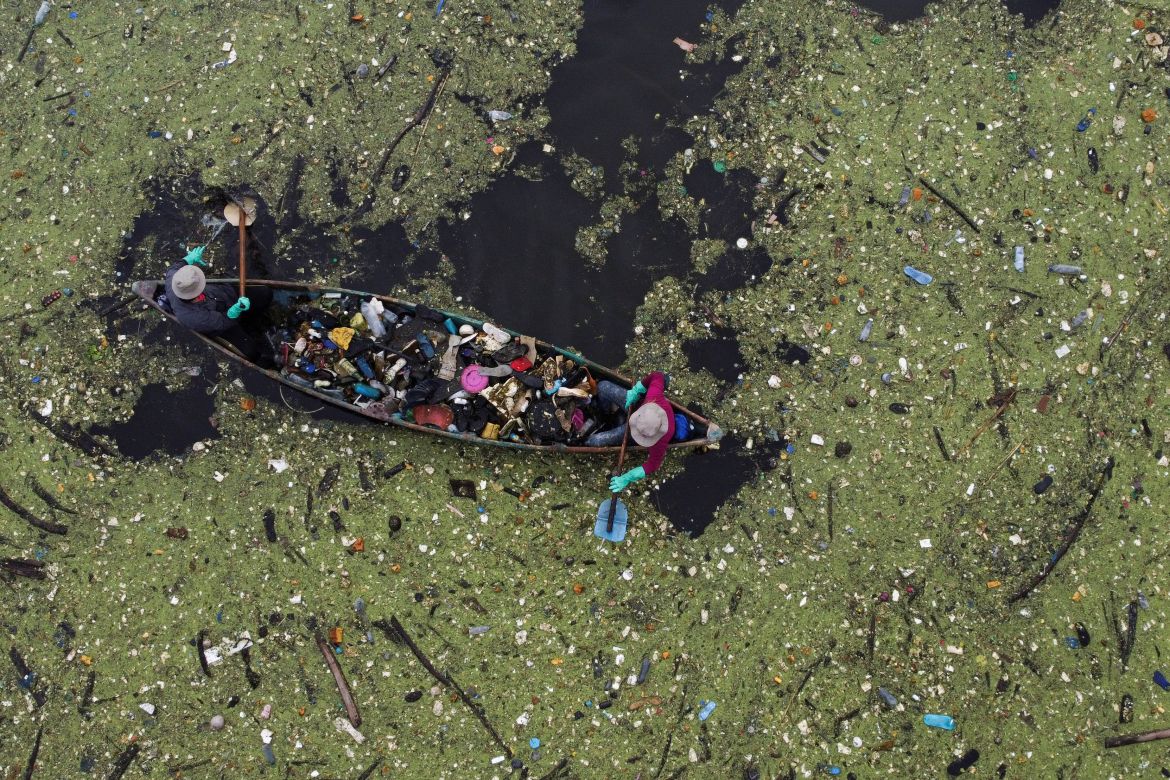
A horse wades through a sea of plastic bottles, tin cans and green sludge that fills El Salvador’s largest freshwater lake – stark images showing how a key drinking water source goes neglected even as global environmental concerns are on the rise.
Known locally as Suchitlan, meaning “place of flowers” in the Indigenous Nahuatl language, the Cerron Grande reservoir’s ecosystem is home to native fish, waterbirds and mammals, such as cougars and ocelots.
A protected site on paper, in reality, it is one of Central America’s most polluted bodies of water.
The government’s inability to control waste flooding the key reservoir comes as world leaders met in Egypt last week to debate environmental priorities at the COP27 climate summit.
The reservoir’s mounting rubbish comes from the Lempa River, which flows from the Guatemalan highlands via neighbouring Honduras, before settling in Cerron Grande, located at the foot of El Salvador’s biggest hydroelectric dam.
The Salvadoran capital’s untreated waste is also swept up by the Acelhuate River before reaching the Lempa, piling in even more rubbish.
Authorities from the nearby town of Potonico, hardest hit by the waste, say that while people living there are not responsible for the polluted water, their health and livelihoods are paying the price.
El Salvador is one of Latin America’s poorest nations. Its popular President Nayib Bukele has largely focused on rounding up suspected gang members and boosting the economy with a controversial bet on volcano-powered Bitcoin mining, which has so far shown few results.
